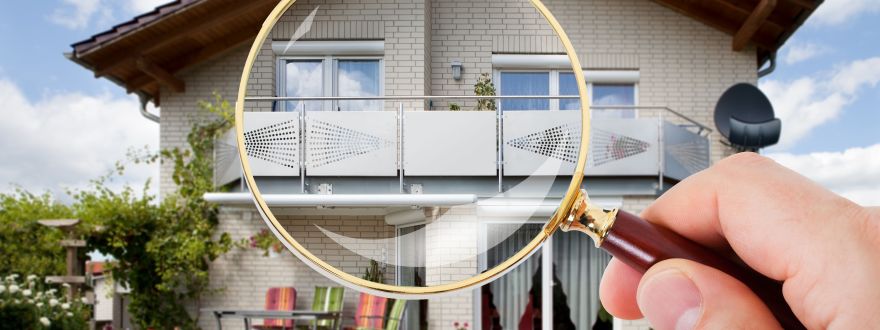
There are several factors that come into play when determining your insurance costs. For instance, according to ComfyLiving, having a swimming pool on your property can increase your insurance rates by 1%. Here are other factors that affect home owner insurance rates.
Your Home's Location
Your location has an enormous impact on your homeowner's insurance rates. For instance, according to the National Association of Insurance Commissioners, Louisiana homeowners generally pay about three times as much as their Oregon counterparts. One reason for this startling difference is natural disasters. Areas that are prone to natural disasters will have more costly home owner insurance rates. When a natural disaster occurs, insurance companies have to pay billions of dollars to cover damages. Therefore, they raise insurance rates.
The Price of Your Home
The price of your home and how much it will cost to rebuild it will affect your home owner insurance costs. As you might imagine, homes that are priced higher will cost more to insure. This is because they will also be quite expensive to rebuild or repair should something happen. The cost of repair and rebuilding depends on other things, like the local construction costs. You also have to factor in the house's style, whether it was custom-built, and whether it has any special features like fireplaces.
Size of the Coverage
One thing to keep in mind when insuring your home is that higher coverage costs more. This means the higher the coverage you have, the more money you'll have to pay monthly. You must keep in mind that repair and rebuilding are not the only things that are considered for your homeowner's insurance policy. There are other types of coverage as well. For instance, consider coverage that includes your belongings, clothes, and furniture.
You should be covered against lawsuits and related costs. This includes medical costs for people injured on your property. Insurance companies also factor in the additional living costs of staying somewhere while your home is being repaired or rebuilt. The policy usually covers each type of coverage to a maximum amount. If you choose to increase coverage for a particular item, your premiums will increase as well.
The Age and Condition of Your Home
Before charging you, an insurance company has to think about the likelihood of your home having major problems or breakdowns and needing repairs. You'll probably pay higher amounts for home insurance if you have an old home. These homes have features that can be quite costly to replace, and they may also not be too structurally sound.
Apart from that, older homes often have outdated electrical and plumbing systems. This puts the insurer at risk since this makes older homes more likely to need upgrades or replacements for those systems than newer homes. Your home's condition also comes into play. Even if it's a new home, insurers usually look at things like the condition of the roof. If the roof is malfunctioning, you can end up with problems like leaks that cause damage that is very costly to repair.
Your Credit History
Did you know that your personal credit history can affect the cost of insurance? In some areas, insurance companies use credit-based insurance scores. This is a factor used to set premiums. This means the amount of debt you have and your payment history can come into play when an insurer is trying to determine how much to charge you for insurance. You can also improve your insurance score by having a better relationship with money and debt. Any method you can use to improve your credit score will improve your insurance score and have you paying less for insurance.
Additional Coverage
Depending on your particular situation, you might get additional coverage. This can extend your current plan or you can even get a separate policy. If you stay in an area that's plagued by disasters like earthquakes and floods, you may find that general home insurance policies don't cover these circumstances. Therefore, additional coverage options are good to look into.
As a result, you may need to have separate policies that address the damage caused by these events. Other insurance companies can require you to pay more if you want hail damage coverage. According to BELFOR Property Restoration, in areas where hailstorms are common, this weather event is the leading cause of damage that results in the filing of claims.
These are some factors that determine the cost of your home owner insurance plan. It's important to insure your home properly. Taking shortcuts to pay less can leave you without coverage, which is quite risky. For more information, contact Evolve Insurance Agency today!
